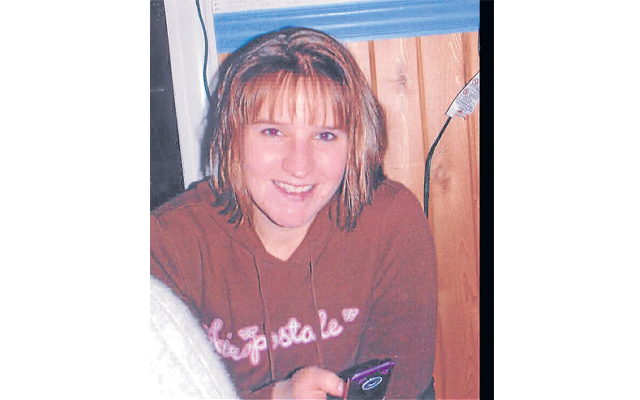AUGUSTA, Maine — The state’s highest court has upheld the murder conviction of a St. Francis man who killed his former girlfriend in her home three years ago.
Jesse Marquis was sentenced to life in prison in July 2016 after jurors found him guilty of murdering his former girlfriend Amy Theriault, a 31-year-old mother of two, at her home in St. Francis on May 31, 2014. The victim was stabbed 11 times and shot at close range.
Marquis, who was represented in his appeal by attorneys Jeremy Pratt and Ellen Simmons, contended that the court erred in admitting into evidence text messages found in Theriault’s phone, as well as three pictures of the crime scene in which her body was visible. He also argued that the judge gave the jury “confusing and legally-flawed” instruction concerning a possible decision that he acted in self defense.
The justices disagreed on all counts.
Assistant Attorney General Lara Nomani represented the state in the appeal.
On the morning of the murder, Marquis traveled to Theriault’s home, stabbed the victim multiple times and shot her in the chest with a Remington 710 .30-06 caliber rifle. Two friends of Theriault, Josh and Jamie Pelletier, were in the home at the time but unable to stop the attack.
Marquis ran off with the gun into the woods behind the house, touching off an intensive six-day manhunt that ended with his capture in St. Francis about a mile from Theriault’s home.
According to testimony, Marquis was enraged after Theriault ended their live-in relationship the day before.
Text messages sent from Marquis to Theriault’s phone the night before at first stated that he loved her and asked that she come spend time with him at a camp where he was staying. Texts sent later that night read, “I never hit you or never was aggressive to you” and “I want my gun.” And again later that night, Marquis sent more texts, saying “I had plans for us,” and “I fed you, made your life easy.”
Marquis contended in his appeal that the text messages were “not temporally relevant to the events of her death.” The justices struck down this argument, writing that the texts made it “more probable that he acted intentionally or knowingly” in the ensuing hours.
Marquis also argued that jury instructions were “convoluted, confusing and hard to follow.”
The justices acknowledged that the instructions were complex because the jurors had to consider the charge of murder, the lesser crime of manslaughter and whether self-defense might be justified.
The justices concluded that “a complex instruction is not per se an erroneous one.” Viewed as a whole, they wrote, the court’s instructions “were internally consistent and legally accurate.”
They also disagreed with the contention that three color crime scene photographs were admitted in error by the state because their “prejudicial effect [on the jurors] outweighed their probative value.”
The justices ruled that the photographs were accurate depictions of the victim and the scene.
“We conclude that the trial court did not obviously err or abuse its discretion in admitting the three photographs, one primarily showing the deceased victim — a central element of the murder charge that the state was required to prove– and the others primarily depicting relevant evidence in the case.”








